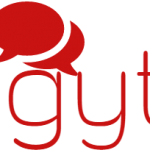Academic publishing is vital for scientists to share their discoveries and ideas with the world. The credibility and reliability of this system are sacrosanct. The rise of powerful AI text generators like ChatGPT has brought a new challenge to the world of academic publishing. Researchers at the University of Kansas have made significant progress in tackling this issue. They have developed a specialized machine-learning tool tailored to the field of chemistry, effectively detecting AI-generated content. This innovative tool helps combat fraudulent scientific papers and safeguards the credibility of academic publishing.
Quest for Precision in AI Detection
Academic publishing’s reliability hinges on the authenticity of the papers it publishes. With the ongoing progress in AI, academic publishers encounter a unique challenge and this is confirming that the content they publish originates from human authors and not generated by any AI tool. Unlike many broad-use AI detectors, a recent University of Kansas study prioritized accuracy in addressing this issue. Lead researcher Professor Heather Desaire, a chemist by profession, led a team that sought to construct a specialized classifier honed to identify AI-generated chemistry papers with unparalleled accuracy. Professor Desaire said, “Most of the field of text analysis wants a really general detector that will work on anything. Our goal was to prioritize accuracy by creating a tool tailored for a specific type of paper.”
Birth of a Specialized ChatGPT Detector
In June, Professor Desaire and her team introduced a new tool designed to identify AI-generated content. This innovative detector uses machine learning to examine various writing style characteristics. These include differences in sentence lengths, how often certain words and punctuation marks are used and other noticeable patterns that set AI-generated content apart from human writing.
Potency of Specificity in AI Detection
The findings stemming from this research are nothing short of remarkable. By examining a small set of unique characteristics, the specialized ChatGPT detector has proven highly accurate at telling apart AI-generated content from text produced by human scientists. Professor Desaire highlights the significance of this breakthrough saying that the findings show that you could use a small set of features to get a high level of accuracy. In essence, this study suggests that future efforts to enhance AI detectors could benefit significantly from the tailoring of software to specific writing domains.
Promise of Enhanced AI Detection in Academic Publishing
The implications of this research extend far beyond the domain of chemistry and academic publishing. The success of domain-specific detectors provides the scientific community with a valuable tool, ensuring not only accuracy but also adaptability across different fields and applications. As Professor Desaire aptly states, “If you can build something quickly and easily, then it is not that hard to build something for different domains.”
In an era where AI-generated content continuously blurs the lines between human and machine authorship, the ChatGPT detector shines as a beacon of hope. Its creation guarantees that academic publishing remains a trusted institution, safeguarding its reputation through rigorous authenticity and scientific merit. The assurance of domain-specific AI detection technology marks a significant stride towards safeguarding the sanctity of scientific publications while also advancing the boundaries of human knowledge.
Embracing the Future of AI Detection
As technology continues to advance, the reliance on AI-generated content in various domains including academia is bound to grow. In light of this, the development of specialized AI detection tools becomes increasingly important. These tools can play a good role in ensuring that academic publishing remains a paragon of authenticity while embracing the potential and benefits of AI.
Verdict
The study was conducted at the University of Kansas and led by Professor Heather Desaire. This takes us a step closer to safeguarding the integrity of academic publishing in an era marked by the rise of AI-generated content. The creation of a specialized ChatGPT detector, fine-tuned for chemistry papers, highlights the immense value of domain-specific AI detection tools. In this journey, researchers have shown that accuracy is utmost important in ensuring the reliability of academic content. As the prospect of tailored software for specific domains emerges, the scientific community advances significantly in protecting its publications and promoting the values of knowledge and truth.





